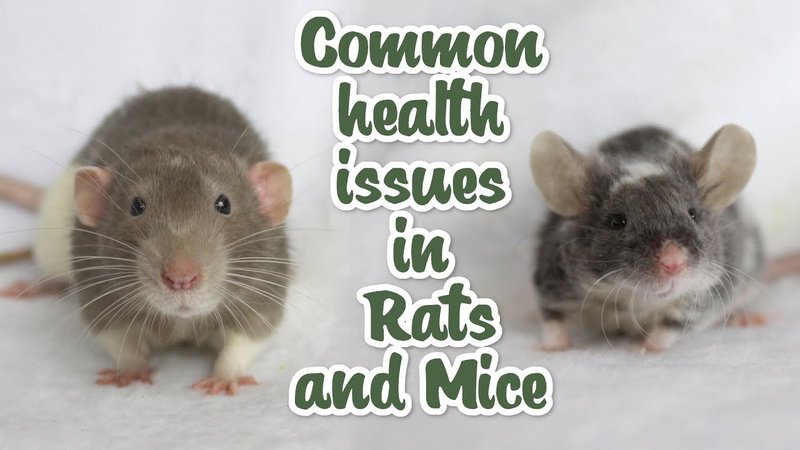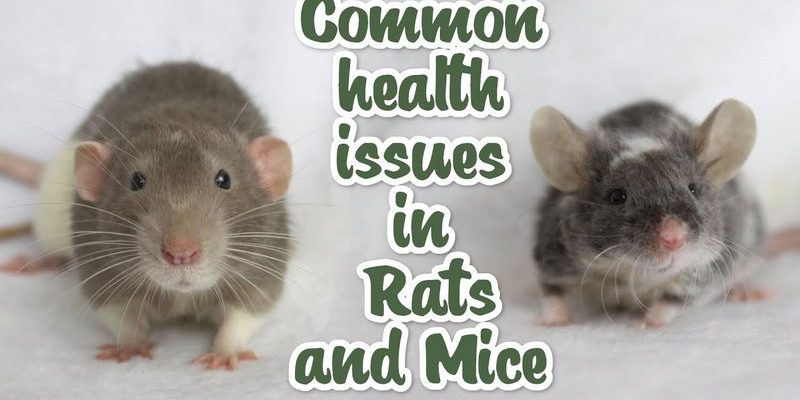
Top-eared rats, often thought of as the ultimate small pet, can face a few health challenges that every owner should be aware of. From respiratory issues to dental problems, these cute companions can encounter some bumps in the road. Keeping them healthy is not just about being vigilant; it’s also about understanding what signs to watch for and how to prevent problems before they start. So grab your favorite drink, and let’s dig into the common health concerns surrounding top-eared rats and the simple steps you can take to keep your furry buddy in tip-top shape.
Understanding Respiratory Issues
Respiratory problems are one of the most common health concerns in top-eared rats. Symptoms can range from sneezing and nasal discharge to more severe issues like labored breathing. Just like us, rats can suffer from colds and allergies, but their tiny bodies can respond quite differently, so it’s essential to pay attention to any signs that something might be off.
The environment plays a huge role in your rat’s respiratory health. Dirty cages, dust from bedding, or even strong smells from cleaning products can trigger respiratory problems. Honestly, keeping their living space clean is key. Change bedding regularly and ensure the cage is well-ventilated to minimize any irritants.
You might be wondering, “What if my rat does get a respiratory infection?” Well, it’s crucial to consult a vet promptly. Early intervention can make a world of difference. Your vet may prescribe antibiotics or suggest other treatments. It’s always better to be safe and tackle any health concerns head-on.
Dental Problems and Their Prevention
Ever notice how rats love to chew? It’s not just a hobby; it’s a necessity! Top-eared rats have continuously growing teeth, and if they don’t wear them down properly, it can lead to serious dental issues. Overgrown teeth can cause pain, difficulty eating, and even infections if not addressed.
To keep those little chompers healthy, provide a variety of chew toys and safe materials like wood blocks or hide chews in their cage. These items help them wear down their teeth naturally. It’s almost like giving them a dental spa day!
In addition to providing chew toys, regular vet check-ups are vital. Your vet will check their teeth during exams, so small issues can be caught early before they become significant problems. Your rat will thank you for it!
Skin and Fur Health
Just like our skin can be affected by various factors, rats can also struggle with skin issues. Common concerns include mites, allergies, and skin infections. A well-groomed rat is a happy rat, but when a rat starts to scratch excessively or loses patches of fur, it’s time to investigate.
Regularly checking your rat for any signs of skin irritation is a good habit. Look for redness, bumps, or anything that seems out of the ordinary. If you suspect a skin issue, it’s best to consult with a vet for proper diagnosis and treatment options.
To prevent skin problems, maintain a clean living environment and provide a balanced diet. A good diet rich in vitamins and healthy fats can promote healthy skin and a shiny coat. Just like how a good diet can benefit us, it can significantly improve your rat’s skin health!
Obesity and Diet Management
Obesity is a growing concern for many pet owners, including those with top-eared rats. Just like humans, rats can gain weight if they’re overfed or not active enough. An overweight rat is at risk for a host of health problems, including diabetes and heart issues.
To prevent obesity, focus on a balanced diet. High-quality rat pellets, along with fresh fruits and vegetables, can create a nutritious meal plan. Avoid giving too many treats, as these can add up quickly. It’s like how we have to say no to that extra slice of cake sometimes!
Encourage activity by providing enrichment in their cage, such as tunnels, climbing structures, and toys to keep them on the move. Honestly, a happy rat is an active rat, so finding ways to stimulate their natural behaviors is essential for their well-being.
Signs of Illness: What to Look For
Being aware of any red flags is crucial when it comes to your top-eared rat’s health. Here are some signs of illness that every owner should know:
- Loss of Appetite: If your rat isn’t eating or drinking, it could be a sign of illness.
- Unusual Behavior: If your usually playful rat is lethargic or hiding more than usual, it’s time to check in.
- Nasal or Eye Discharge: This can indicate respiratory problems or infections.
- Weight Changes: Sudden weight loss or gain can be a significant health issue.
If you observe any of these signs, don’t hesitate to reach out to a vet. Early detection can lead to better outcomes and happier, healthier companions. Your top-eared rat relies on you to pick up on these cues.
Building a Strong Bond: Regular Vet Visits
While keeping an eye on everyday behavior can help you spot issues, regular vet visits are just as crucial. Think of it as taking your furry friend to their ‘wellness check-up.’ Routine check-ups help catch potential problems before they become serious.
Your vet can provide valuable advice on nutrition, exercise, and general care unique to your top-eared rat. Plus, they can answer any questions or concerns you may have.
Make these vet visits a positive experience for your rat. Some gentle handling and treats can help them associate the vet visit with something good, making it easier for you both in the long run. It’s all about trust and making them feel comfortable!
In the end, being a top-eared rat owner is a rewarding experience filled with joy and companionship. However, it comes with responsibilities, including keeping an eye on those little health concerns that can pop up. By understanding common issues like respiratory problems, dental health, and obesity, you can take proactive steps in their care.
Remember, you’re not just a pet owner; you’re a vital part of your rat’s life. With a little knowledge and attention, you can help your furry friend live a long, happy, and healthy life. Just like any relationship, it’s all about communication, care, and a sprinkle of love!

